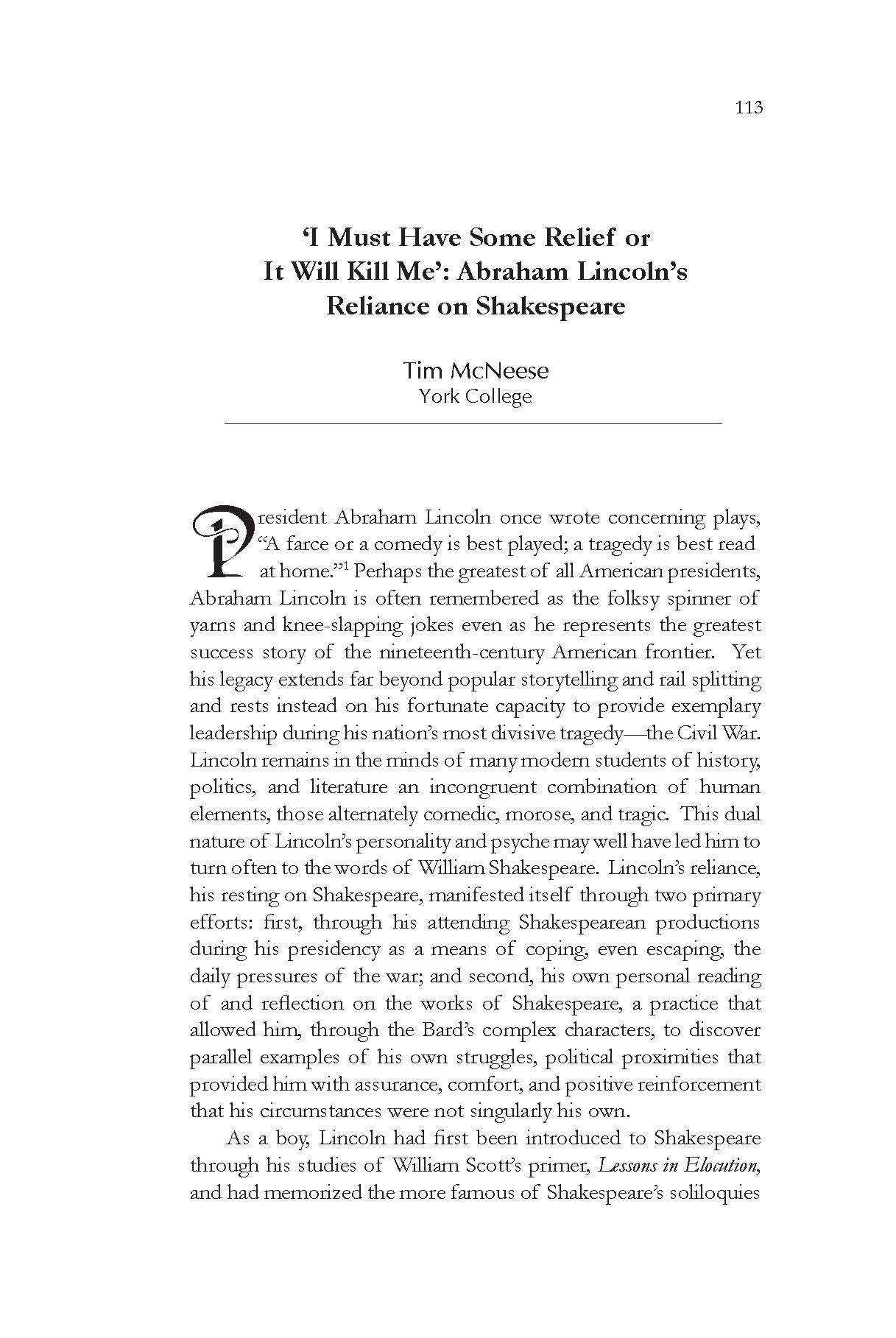‘I Must Have Some Relief or It Will Kill Me’: Abraham Lincoln’s Reliance on Shakespeare
Main Article Content
Abstract
President Abraham Lincoln once wrote concerning plays, “A farce or a comedy is best played; a tragedy is best read at home.”1 Perhaps the greatest of all American presidents, Abraham Lincoln is often remembered as the folksy spinner of yarns and knee-slapping jokes even as he represents the greatest success story of the nineteenth-century American frontier. Yet his legacy extends far beyond popular storytelling and rail splitting and rests instead on his fortunate capacity to provide exemplary leadership during his nation’s most divisive tragedy—the Civil War. Lincoln remains in the minds of many modern students of history, politics, and literature an incongruent combination of human elements, those alternately comedic, morose, and tragic. This dual nature of Lincoln’s personality and psyche may well have led him to turn often to the words of William Shakespeare. Lincoln’s reliance, his resting on Shakespeare, manifested itself through two primary efforts: first, through his attending Shakespearean productions during his presidency as a means of coping, even escaping, the daily pressures of the war; and second, his own personal reading of and reflection on the works of Shakespeare, a practice that allowed him, through the Bard’s complex characters, to discover parallel examples of his own struggles, political proximities that provided him with assurance, comfort, and positive reinforcement that his circumstances were not singularly his own.
